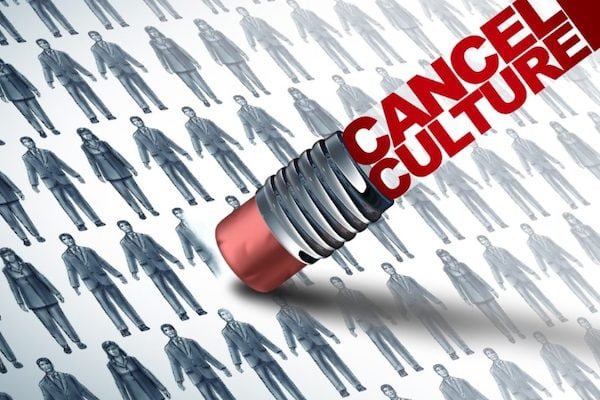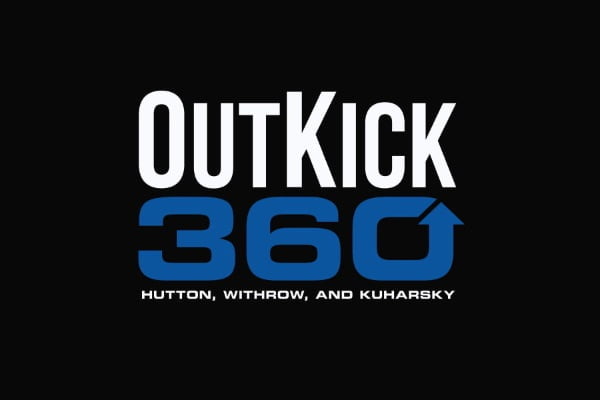Cancel culture is a phrase we hear a lot. We hear that it will be the death of any industry that involves talking for a living. Say one wrong thing and there is a mob waiting to exploit that slip up. They have all of your advertisers memorized and on speed dial and they would love to take you down.

That’s the narrative, right? There are networks that have devoted their entire existence to railing against cancel culture.
It made me wonder how the phenomenon is seen by management. Is cancel culture really something programmers think about? Do they have conversations about it regularly with hosts and producers or is it nothing more than BS talking points – an invisible enemy meant to drive Tucker Carlson’s ratings?
Allan Davis is a respected PD. I asked what he thought.
I was surprised to learn that cancel culture is something the WGR 550 boss thinks about a lot. He told me that it is a concern for him and his crew.
“All our hosts, producers and anchors combine their many talents to create the WGR Brand,” he told me. “They are flying without a net and every utterance over the air, or on social media is judged.”
“Flying without a net” is a phrase we hear a lot. It’s a good visual metaphor for broadcasting. But flying without a net doesn’t mean Davis’ crew is left to guess what is and isn’t okay. He is going to arm them with the knowledge and coaching they need to create great content that doesn’t risk their paycheck.
“Not only is ‘Cancel Culture’ potentially damaging for the brand but – perhaps more so – for the personality,” added Davis. “Therefore, we closely monitor the content on all platforms, provide clear guidelines, offer direction and support and encourage the staff to come to the management team with any questions or concerns. Complete transparency is the most effective strategy.”
I think it is easy to make the mistake that cancel culture is something the right-wing uses to scare its followers into action. That’s not exactly true though. Ask someone how concerned they are about cancel culture and their answer is way more likely to depend on age than political affiliation.
We see this in so many different walks of life. It can be new technology, routine disruptions at home or work, or even a new hairstyle. The older you are, the scarier change is. Plus, the older you get, the less convenient it is to learn new rules.
That can be part of the reason some people dismiss the idea of cancel culture. A 60-something worried he can’t be casually racist anymore is easy to dismiss with probably the worst phrase to gain popularity in a decade: “Okay, Boomer.” It is probably also the reason there is a wide swath of reactions to the idea amongst us older millennials/low end GenXers (I graduated high school in 99, so it depends who you ask). We are stuck between being around or over 40. We’ve been here a while and we have our ways that we are set in, whether we’d admit to that or not. However, we have also largely grown up with the global community technology and social media provide and have had it hammered into us for a long time that our experience is not everyone’s experience.
But maybe it is the opposite that is true. Sure, it can be tough to make changes when you are older, but when you are younger, it is easy to feel like you are wrong all of the time. Saying young people are too sensitive or get their feelings hurt too easily is simplifying what is really going on.
Gen Zers were raised in a culture of permission over forgiveness. Sure, some of them get their feelings hurt easily, but a lot of them can be taken aback by the absolute lack of doubt or fear others can operate with.
That’s not to say that things are never as simple as jerks acting like jerks. It just means that it is a sliding scale with harsh consequences and it is easy to see why that is scary and concerning.
Davis isn’t interested in the sociology of it all. WGR isn’t going to be in the cultural commentary business on his watch. He hopes that eliminates any potential there may be for his station or his talent to get cancelled.

“It’s necessary given the cultural volatility in our society. We work hard, to offer a safe haven for WGR listeners and followers on all our platforms. Simply put – We talk sports at WGR. Bills and Sabres. All the time. While we recognize and acknowledge, the many potentially toxic events affecting all of our lives each day, we offer our listeners an escape from the noise by sticking to sports.”

Demetri Ravanos is a columnist and features writer for Barrett Media. He is also the creator of The Sports Podcast Festival, and a previous host on the Chewing Clock and Media Noise podcasts. He occasionally fills in on stations across the Carolinas in addition to hosting Panthers and College Football podcasts. His radio resume includes stops at WAVH and WZEW in Mobile, AL, WBPT in Birmingham, AL and WBBB, WPTK and WDNC in Raleigh, NC.
You can find him on Twitter @DemetriRavanos or reach him by email at DemetriTheGreek@gmail.com.








